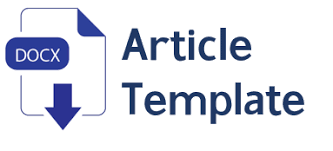Dampak Digitalisasi pada Profesi Akuntansi: Tantangan dan Peluang bagi Akuntan Masa Depan
DOI:
https://doi.org/10.59086/jak.v4i1.593Keywords:
Digitalisasi, Profesi Akuntan, Tantangan, Peluang, Masa DepanAbstract
This study analyzes the impact of digitalization on the accounting profession, focusing on the challenges and opportunities it presents. It employs a qualitative approach using a literature review and secondary data analysis from journals and publications related to digitalization and the accounting profession. The research population includes accounting practitioners, academics, and regulators, with the sample consisting of selected literature relevant to the research topic. The data analysis technique used is thematic analysis, which identifies patterns, themes, or concepts emerging from the collected data. The findings indicate that digitalization enhances efficiency and accuracy through the automation of routine tasks and system integration. However, accountants are now required to develop new skills in information technology, data analysis, and business strategy. As a result, the role of accountants is shifting from administrative functions to more analytical and strategic positions, creating opportunities for them to serve as value-added business advisors. Nonetheless, challenges such as cybersecurity risks, regulatory uncertainties, and resistance to change must be addressed. The study's limitations include its reliance on secondary data and the rapid advancement of technology, which may necessitate future updates. Overall, digitalization is not only transforming the way accounting is conducted but also paving the way for innovation and growth within the profession.
References
Agostino, D., Saliterer, I., & Steccolini, I. (2022). Digitalization, accounting and accountability: A literature review and reflections on future research in public services. In Financial Accountability and Management (Vol. 38, Issue 2). https://doi.org/10.1111/faam.12301
Antonini, C. (2024). Accounting digitalization in the quest for environmental sustainability. In Current Opinion in Environmental Sustainability (Vol. 66). https://doi.org/10.1016/j.cosust.2023.101399
Ardiansyah, L. Y., Imtiyaz Farras Mufidah, & Anisaul Hasanah. (2023). Implications of Digitalization of Accounting for the Development of the Accounting Curriculum. International Journal of Islamic Business and Management Review, 3(2). https://doi.org/10.54099/ijibmr.v3i2.804
Awang, Y., Taib, A., Shuhidan, S. M., Zakaria, Z. N. Z., Ifada, L. M., & Sulistyowati, S. (2023). Mapping between Digital Competencies and Digitalization of the Accounting Profession among Postgraduate Accounting Students. Asian Journal of University Education, 19(1). https://doi.org/10.24191/ajue.v19i1.21226
Bastos, S. M., Oliveira, H. C., & Caggiano, V. (2021). Hybrid model in accounting education: The experience of management simulation course. Cypriot Journal of Educational Sciences, 16(5). https://doi.org/10.18844/cjes.v16i5.6345
Chulanov, K., Khymchenko, Y., Mykhailov, O., & Piven, V. (2022). IMPACT OF DIGITALIZATION ON ACCOUNTING IN THE TRANSITION TO INDUSTRY 4.0. Vìsnik Sumsʹkogo Deržavnogo Unìversitetu, 2022(3). https://doi.org/10.21272/1817-9215.2022.3-6
Coman, D. M., Ionescu, C. A., Duică, A., Coman, M. D., Uzlau, M. C., Stanescu, S. G., & State, V. (2022). Digitization of Accounting: The Premise of the Paradigm Shift of Role of the Professional Accountant. Applied Sciences (Switzerland), 12(7). https://doi.org/10.3390/app12073359
Denicolai, S., & Previtali, P. (2023). Innovation strategy and digital transformation execution in healthcare: The role of the general manager. Technovation, 121. https://doi.org/10.1016/j.technovation.2022.102555
Gileva, D. V. (2022). Digitalisation in accounting. Vestnik Universiteta, 2. https://doi.org/10.26425/1816-4277-2022-2-108-113
Ionescu-Feleagă, L., Dragomir, V. D., Bunea, Ștefan, Stoica, O. C., & Barna, L. E. L. (2022). Empirical Evidence on the Development and Digitalization of the Accounting and Finance Profession in Europe. Electronics (Switzerland), 11(23). https://doi.org/10.3390/electronics11233970
Mohamad Noor, W. N. B. W., Abd Razak, S. N. A., Mat Jusoh, Y. H., Hasan, S. J., & Zainal Ariffin, M. (2022). Analysing Accounting Professionals’ Readiness for Digital Economy Using the Theory of Organisational Readiness for Change. International Journal of Academic Research in Business and Social Sciences, 12(11). https://doi.org/10.6007/ijarbss/v12-i11/15338
Pan, G., & Lee, B. (2020). Leveraging Digital Technology to Transform Accounting Function: Case Study of a SME. International Journal of Accounting and Financial Reporting, 10(2). https://doi.org/10.5296/ijafr.v10i2.17052
Pargmann, J., Riebenbauer, E., Flick-Holtsch, D., & Berding, F. (2023). Digitalisation in accounting: a systematic literature review of activities and implications for competences. In Empirical Research in Vocational Education and Training (Vol. 15, Issue 1). https://doi.org/10.1186/s40461-023-00141-1
Ruggeri, D., Leotta, A., & Rizza, C. (2023). Digitalisation and accounting language games in organisational contexts. Journal of Management and Governance, 27(3). https://doi.org/10.1007/s10997-022-09626-9
Valentinov, V., Van Assche, K., & Hermans, F. (2023). Toward a digital transformation of the theory of the firm: Emergence as framework for organizational sustainability. Canadian Journal of Administrative Sciences, 40(3). https://doi.org/10.1002/cjas.1668
Zhang, M., Ye, T., & Jia, L. (2022). Implications of the “momentum” theory of digitalization in accounting: Evidence from Ash Cloud. China Journal of Accounting Research, 15(4). https://doi.org/10.1016/j.cjar.2022.100274
Downloads
Published
How to Cite
Issue
Section
License
Copyright (c) 2025 Yunita Althin Natanael , Tri Pertiwi , Saddam Hasrul , Edi Jamaris

This work is licensed under a Creative Commons Attribution 4.0 International License.
Mandiri Jurnal Akuntansi dan Keuangan
Publisher Lembaga Riset Ilmiah
© 2025

This work is licensed under a Creative Commons Attribution 4.0 International License.
Most read articles by the same author(s)
- Yunita Althin Natanael, Edi Jamaris, Pengaruh Penerapan SAP, Kualitas SDM, Penerapan SPIP Terhadap Kualitas Laporan Keuangan Pada Pemkab Aceh Tenggara , Mandiri : Jurnal Akuntansi dan Keuangan: Vol. 2 No. 2 (2023): Juni 2023
- Yunita Althin Natanael, Deni Trianda Pitri , Pengaruh Likuiditas, Dan Profitabilitas Terhadap Harga Saham Pada Perusahaan Manufaktur Sub Sektor Tekstil Dan Garment Yang Terdaftar Di Bursa Efek Indonesia , Mandiri : Jurnal Akuntansi dan Keuangan: Vol. 1 No. 3 (2022): Oktober 2022
- Yunita Althin Natanael , Edi Jamaris , Efek Deteren Mekanisme Whistleblowing, Budaya Tata Kelola Perusahaan, dan Machiavellianisme dalam Konteks Perusahaan Indonesia , Mandiri : Jurnal Akuntansi dan Keuangan: Vol. 4 No. 3 (2025): 2025












